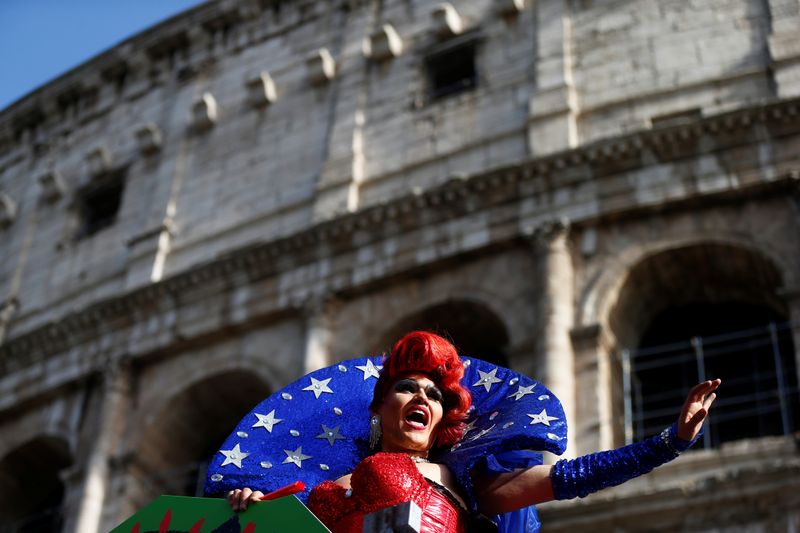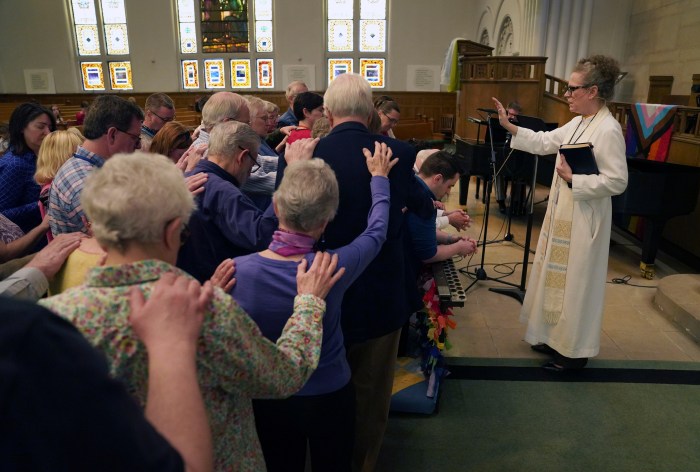ROME (Reuters) – Italy’s lower house of parliament on Wednesday passed an anti-discrimination bill that makes violence against women and LGBT+ people a hate crime, with those found guilty of such attacks risking longer prison terms.
The bill was approved by 265 votes to 193 in the 630-member chamber and now needs a final green light from the upper house Senate, where it has the support of the ruling coalition parties, before becoming law.
It modifies an existing law punishing offences based on someone’s race or religion with up to four years in jail.
“It is a big step forward against discrimination, hatred and violence,” Alessandro Zan, the openly gay lawmaker who promoted the law, wrote on Twitter.
The change was championed by the centre-left Democratic Party (PD), but faced opposition from right-wing parties and the Italian Roman Catholic Church, which said existing protections were strong enough.
The conservative campaign group Pro Life and Family has said the bill will make LGBT+ people “more equal than others”, while Italian bishops warned last June that the new law could curb dissenting opinions, including that a family requires the union of a man and a woman.
Zan has denied that the bill would impinge on free speech, saying it would only punish those who incite hatred.
LGBT+ advocacy groups say homophobia is a serious problem in Italy and have long complained that homophobic and transphobic attacks are tried on lesser charges than racist assaults.
Italy’s largest LGBT+ rights group, Arcigay, records more than 100 hate crime and discrimination cases each year, but numerous attempts over the last 25 years to create a law to punish acts of homophobia and transphobia have failed.
In Italy, where same-sex unions were passed in 2016, the approval of civil rights laws has often been marked by strong opposition from Catholic and conservative groups.
(Reporting by Angelo Amante, Emily Roe and Cristiano Corvino; Editing by Nick Macfie)



















